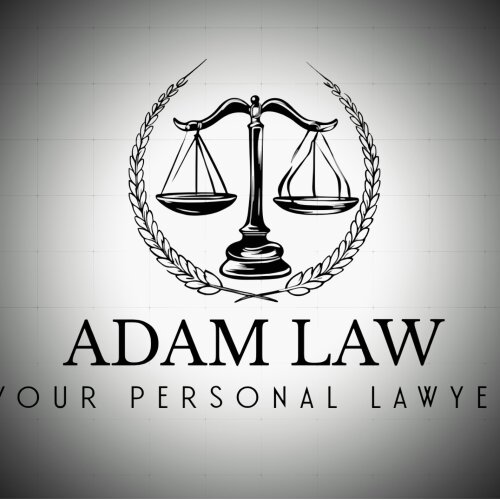
Best Contract Lawyers in Stockholm
Share your needs with us, get contacted by law firms.
Free. Takes 2 min.
List of the best lawyers in Stockholm, Sweden

About Contract Law in Stockholm, Sweden
Contract law in Stockholm, Sweden, is a critical aspect of the legal framework that governs agreements between parties. Whether it involves buying a property, hiring employees, or engaging in a business transaction, contracts are essential for formalizing commitments and ensuring legal enforceability. Swedish contract law follows principles of mutual consent, fairness, and good faith, and is influenced by both national legislation and European Union directives.
Why You May Need a Lawyer
There are numerous situations where legal expertise in contract law can be indispensable:
- Drafting and Reviewing Contracts: Ensuring that the terms are clear, fair, and legally sound.
- Dispute Resolution: Handling disagreements over contract terms or breaches of contract.
- Negotiations: Assisting with contract negotiations to protect your interests.
- Compliance: Making sure that contracts adhere to local and EU regulations.
- Business Transactions: Guiding through complex transactions such as mergers, acquisitions, or partnerships.
- Employment Agreements: Helping to create and review contracts related to hiring, non-compete clauses, and severance.
Local Laws Overview
Several key aspects of local laws are particularly relevant to contracts in Stockholm:
- The Swedish Contracts Act (Avtalslagen): A foundational piece of legislation that outlines the general principles for forming and executing contracts.
- The Consumer Sales Act (Konsumentköplagen): Governs contracts between businesses and consumers, ensuring consumer protection.
- Commercial Agency Act: Regulates the relationships between commercial agents and principals.
- Employment Protection Act: Covers various aspects of employment contracts, including termination and worker rights.
- EU Regulations: Swedish contract law is also influenced by overarching EU laws which may supersede national laws in some areas.
Frequently Asked Questions
1. What makes a contract legally binding in Sweden?
A contract becomes legally binding when there is a mutual agreement between parties, a clear offer and acceptance, and an intention to create legal relations. Both parties must have the capacity to consent, and the contract terms must be clear and certain.
2. Can verbal agreements be enforced?
Yes, verbal agreements can be legally binding in Sweden; however, proving the terms of a verbal contract can be challenging. It is generally advisable to have a written contract to mitigate risks.
3. What should be included in a contract?
A typical contract should include the identities of the parties involved, terms and conditions, rights and obligations, payment details, duration of the contract, and termination clauses. Other specific details may be needed depending on the type of contract.
4. How are contract disputes resolved?
Contract disputes in Sweden can be resolved through negotiation, mediation, arbitration, or litigation. The approach taken will depend on the contract terms and the nature of the dispute.
5. Are non-compete clauses enforceable?
Non-compete clauses are generally enforceable in Sweden but must be reasonable in scope, duration, and geographic area. They should not unduly restrict an employee’s ability to find new employment.
6. What happens if a contract term is deemed unfair?
If a contract term is found to be unfair or unreasonable, it may be modified or nullified by a court. Swedish law protects parties from exploitative or unconscionable contract terms.
7. How do I terminate a contract legally?
The process for terminating a contract should be outlined within the contract itself. If not, you may need to negotiate termination terms or seek legal advice to ensure compliance with Swedish laws.
8. What are liquidated damages?
Liquidated damages are a predetermined amount of money that one party agrees to pay the other in the event of a breach. These terms must be reasonable and reflect a genuine pre-estimate of loss.
9. Can contract terms be changed after signing?
Contract terms can be amended if both parties agree to the changes. It is advisable to document any amendments in writing and have them signed by both parties.
10. Is electronic signature valid?
Yes, electronic signatures are legally valid in Sweden and can be used to sign contracts, provided they meet the necessary legal requirements for authenticity and integrity.
Additional Resources
For further assistance with contract law in Stockholm, consider the following resources:
- Swedish Bar Association: Provides information and resources for finding qualified lawyers in Sweden.
- The Swedish Consumer Agency (Konsumentverket): Offers guidance and assistance for consumer-related contract issues.
- Business Sweden: An organization that helps businesses navigate commercial contracts and compliance.
- European Consumer Centre: Assists with cross-border consumer disputes within the EU.
Next Steps
If you find yourself in need of legal assistance regarding contracts in Stockholm, Sweden, take the following steps:
- Identify your specific needs: Determine whether you need help with drafting, reviewing, or disputing a contract.
- Consult a lawyer: Seek professional advice from a qualified contract lawyer to understand your rights and options.
- Prepare documentation: Gather all relevant documents, including the contract itself and any correspondence or evidence related to the matter.
- Schedule a consultation: Arrange a meeting with a lawyer to discuss your situation in detail and receive tailored advice.
- Follow legal advice: Adhere to the recommendations made by your lawyer to ensure compliance and protect your interests.
Lawzana helps you find the best lawyers and law firms in Stockholm through a curated and pre-screened list of qualified legal professionals. Our platform offers rankings and detailed profiles of attorneys and law firms, allowing you to compare based on practice areas, including Contract, experience, and client feedback.
Each profile includes a description of the firm's areas of practice, client reviews, team members and partners, year of establishment, spoken languages, office locations, contact information, social media presence, and any published articles or resources. Most firms on our platform speak English and are experienced in both local and international legal matters.
Get a quote from top-rated law firms in Stockholm, Sweden — quickly, securely, and without unnecessary hassle.
Disclaimer:
The information provided on this page is for general informational purposes only and does not constitute legal advice. While we strive to ensure the accuracy and relevance of the content, legal information may change over time, and interpretations of the law can vary. You should always consult with a qualified legal professional for advice specific to your situation.
We disclaim all liability for actions taken or not taken based on the content of this page. If you believe any information is incorrect or outdated, please contact us, and we will review and update it where appropriate.















